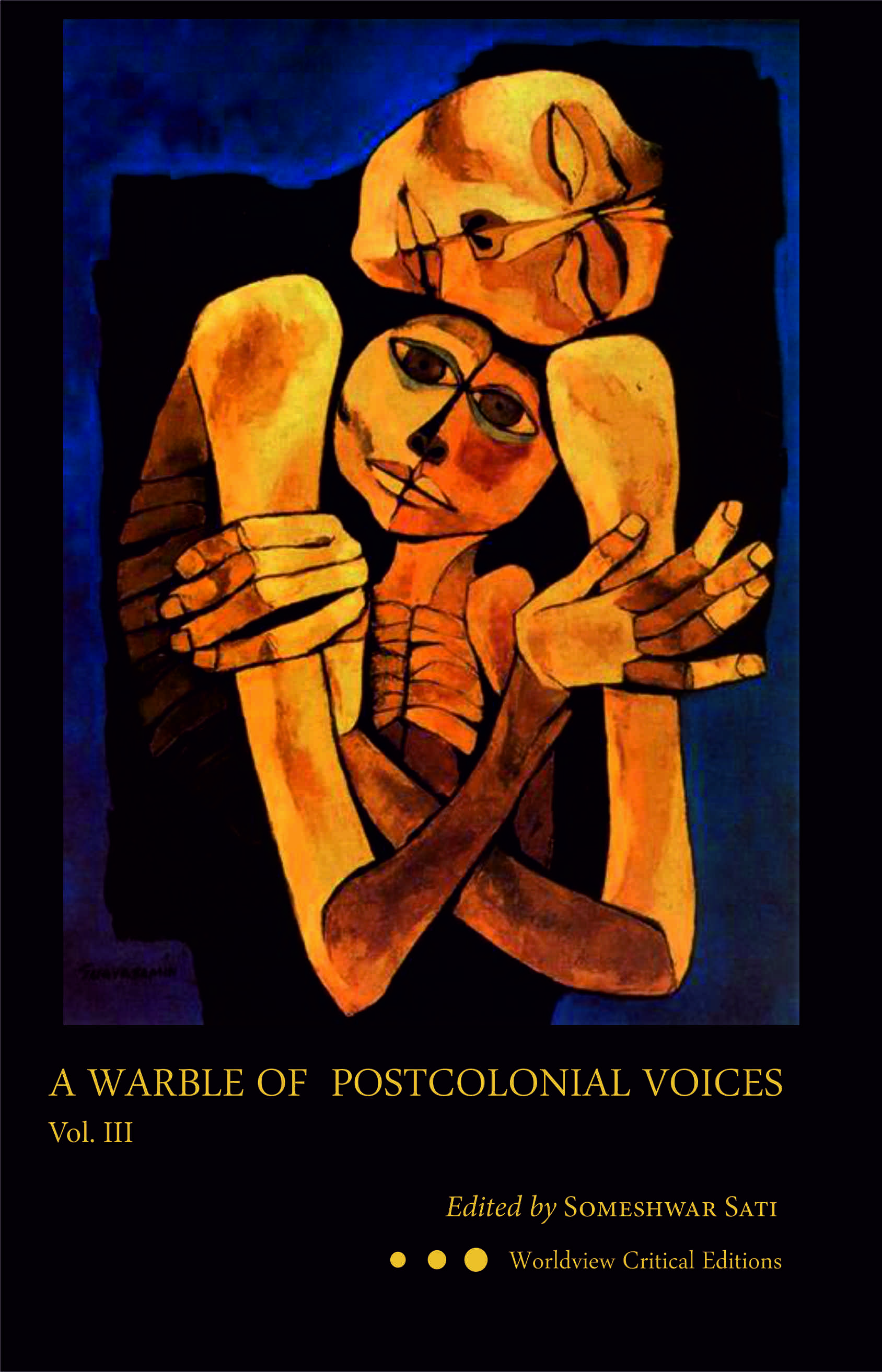
Semester : sixth semester
Editor : Someshwar Sati
The third volume of A Warble of Postcolonial Voices is dedicated to a critical study of Indra Sinha’s Animal’s People and M.M. Vinondini’s “The Parable of the Lost Daughter.” Prefaced by an introduction, the book acquaints the readers with the evolution and canonisation of postcolonial literature and provides a background that enables them to see the politics of the two prescribed texts. The book is divided into two sections and each work is supplemented by critical essays that destabilize the colonial discourse and critically look at the postcolonial subject along the axes of language, history, gender, disability and caste. The volume, thus, by positing challenges to unitary and fixed notions of the postcolonial subject piques the interest of students and enables them to critically and actively engage with the text.The third volume of A Warble of Postcolonial Voices is dedicated to a critical study of Indra Sinha’s Animal’s People and M.M. Vinondini’s “The Parable of the Lost Daughter.” Prefaced by an introduction, the book acquaints the readers with the evolution and canonisation of postcolonial literature and provides a background that enables them to see the politics of the two prescribed texts. The book is divided into two sections and each work is supplemented by critical essays that destabilize the colonial discourse and critically look at the postcolonial subject along the axes of language, history, gender, disability and caste. The volume, thus, by positing challenges to unitary and fixed notions of the postcolonial subject piques the interest of students and enables them to critically and actively engage with the text.The third volume of A Warble of Postcolonial Voices is dedicated to a critical study of Indra Sinha’s Animal’s People and M.M. Vinondini’s “The Parable of the Lost Daughter.” Prefaced by an introduction, the book acquaints the readers with the evolution and canonisation of postcolonial literature and provides a background that enables them to see the politics of the two prescribed texts. The book is divided into two sections and each work is supplemented by critical essays that destabilize the colonial discourse and critically look at the postcolonial subject along the axes of language, history, gender, disability and caste. The volume, thus, by positing challenges to unitary and fixed notions of the postcolonial subject piques the interest of students and enables them to critically and actively engage with the text.The third volume of A Warble of Postcolonial Voices is dedicated to a critical study of Indra Sinha’s Animal’s People and M.M. Vinondini’s “The Parable of the Lost Daughter.” Prefaced by an introduction, the book acquaints the readers with the evolution and canonisation of postcolonial literature and provides a background that enables them to see the politics of the two prescribed texts. The book is divided into two sections and each work is supplemented by critical essays that destabilize the colonial discourse and critically look at the postcolonial subject along the axes of language, history, gender, disability and caste. The volume, thus, by positing challenges to unitary and fixed notions of the postcolonial subject piques the interest of students and enables them to critically and actively engage with the text.The third volume of A Warble of Postcolonial Voices is dedicated to a critical study of Indra Sinha’s Animal’s People and M.M. Vinondini’s “The Parable of the Lost Daughter.” Prefaced by an introduction, the book acquaints the readers with the evolution and canonisation of postcolonial literature and provides a background that enables them to see the politics of the two prescribed texts. The book is divided into two sections and each work is supplemented by critical essays that destabilize the colonial discourse and critically look at the postcolonial subject along the axes of language, history, gender, disability and caste. The volume, thus, by positing challenges to unitary and fixed notions of the postcolonial subject piques the interest of students and enables them to critically and actively engage with the text.Someshwar Sati teaches English at Kirori Mal College, University of Delhi.
Paper Back
worldview publications
2023
English
New
someshwar sati
ENGLISH HONOURS SIXTH SEMESTER (THREE YEAR)
9789382267492
25.00” x 1.00” x 14.00"
0.50 Kg
Be the first person to add review